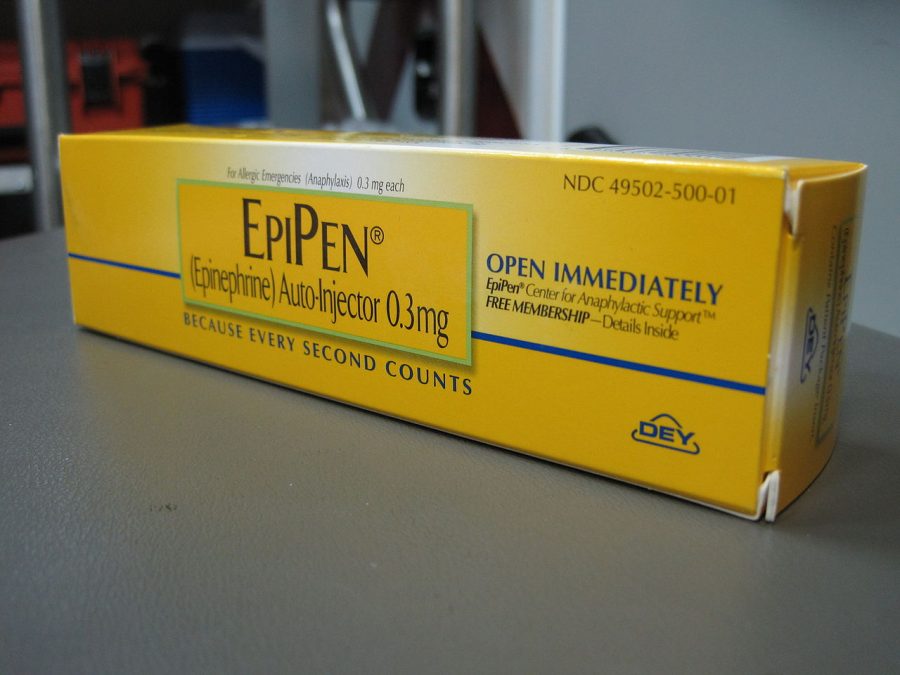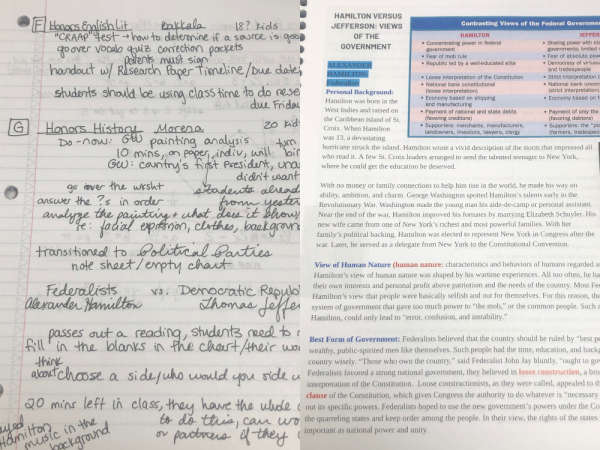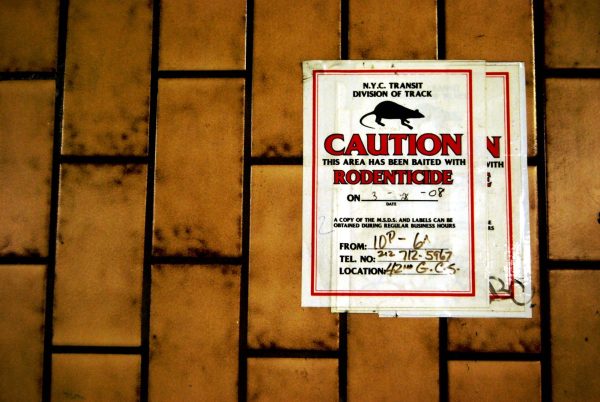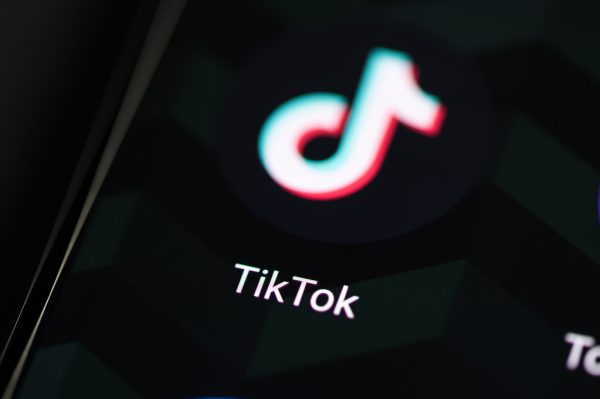Price spike for EpiPen sparks claims of corporate greed
Google image/Creative Commons license
The cost of an EpiPen package has jumped to as much as $1,500.
To nearly 40 million Americans affected by severe allergies, the EpiPen Auto-Injector is more than just another drug on the market. It is literally a life-saving device that counteracts an allergic reaction known as anaphylaxis, which causes a victim’s throat to swell shut.
Since August, many Americans have faced concerns that they will no longer be able to afford it. The price of the EpiPen soared to $600 this summer. In contrast, the cost was only $60 in 2007.
According to AMSA school nurse Maureen Searl, the price can be as high as $1,500 because EpiPens are only sold in packages of two. The question is how and why the prices increased so dramatically.
The explanation on the lips of critics is one of simple corporate greed. Mylan, the pharmaceutical giant that controls the EpiPen, has arguably failed to present a strong argument that can justify pricing a dollar’s worth of epinephrine at several hundred.
Mrs. Searl explained that Mylan overlooked the value that EpiPens have to people with allergies. Having witnessed numerous incidents in which an EpiPen saved someone from a fatal reaction, she said that Mylan’s actions “make me feel that drug companies are more concerned with profit.”
Her assessment is supported by the company’s own actions. Mylan is a practitioner of the technique known as “inversion,” in which a company buys an overseas competitor (in Mylan’s case, Abbott Laboratories in the Netherlands) and then reincorporates in that country to avoid paying U.S. taxes—even though the workforce and the manufacturing facility remain in Pennsylvania.
Los Angeles Times columnist Michael Hiltzik took Mylan to task in August, writing that the company is “simply profiteering from market dynamics: Its main competitor, a product made by Sanofi, was taken off the market last year because of manufacturing defects.”
Granted, pharmaceutical companies rely on their profits to fund important research and keep their businesses alive, but when a relentless profit motive keeps necessary medicine out of the reach of consumers, has an ethical line been crossed?
“No one’s expecting Mylan to give away their products,” Wells Fargo analyst David Maris told CNN in August. “But empathy is the most human emotion. And when you raise prices year after year—by a lot—for a drug that’s life-saving, it shows a complete lack of empathy.”

Mylan CEO Heather Bresch received $19 million in compensation in 2015.
At least 75 AMSA students suffer from allergies and keep an EpiPen at school. Mrs. Searl said she hopes that every student with allergies has an EpiPen, but she cannot be certain. The rising prices make it harder for parents even with insurance to buy EpiPens for both school and home.
EpiPens are essential to emergency situations because they eliminate life-threatening symptoms until medical help arrives. They are quick to use, accurate at dosing, and require no medical training to administer, making them especially useful in elementary and high schools.
There are no other injectors that are as effective at delivering epinephrine and saving lives.
After Sanofi’s Auvi-Q injector was taken off the market, Mylan had a monopoly. Mylan might have let the prices level off, but instead officials made an apparent decision to take advantage of the fact that people could only buy their product.
“It’s outrageous,” Mr. Maris said. “People shouldn’t be fooled by the idea that the system made them do it. Mylan is to blame for the high prices of the EpiPen.”
It is especially troublesome because the demand for EpiPens is increasing and the injectors expire after a year. Bloomberg reported in September of 2015 that “the number of patients using EpiPen has grown 67 percent over the past seven years.”
Mylan CEO Heather Bresch defended her company’s business practices and said that comparisons to other members of big pharma were unfair, such as drawing a parallel to a decision by Turing Pharmaceuticals to raise the price of a drug called Daraprim by 5,000 percent.
Ms. Bresch told The New York Times that the price increases were not in the “same hemisphere.” She said that the EpiPen price increase is incomparable to the Daraprim increase because it rose gradually and not nearly as high.
Her statements strike many as hollow. Unlike Turing, Mylan has a monopoly over the expanding epinephrine-injector market, and the EpiPen has immediate life-saving effects.
In addition, Ms. Bresch claims that the efforts of Mylan to spread awareness about anaphylaxis and the programs designed to make EpiPens more affordable compensate for the increased prices.
In reality, Mylan started the programs in response to a lawsuit filed after the price increase.
The Washington Post reported that Ms. Bresch, who is the daughter of West Virginia Senator Joe Manchin III, received $19 million in compensation in 2015, a staggering 671 percent increase since 2007.
She has stated that she deserves the high salary as a reward for her efforts at spreading EpiPen awareness and increasing availability.
But, according to Mrs. Searl, people have to have insurance in order to qualify for reduced prices. Anyone without insurance, including people who say they cannot afford it, must pay full price.
Despite the efforts Ms. Bresch has made to justify the price increases of the EpiPen, it is difficult to rationalize Mylan’s decisions. It becomes much easier for people to point a finger at corporate avarice.

Clarice is a senior looking to refine her writing skills before she proceeds to college. Although she wishes to pursue a career in the natural sciences,...






